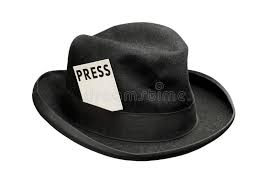
Wyoming's Most Listened to Political Podcast

Wyoming's Most Listened to Political Podcast

The Wyoming Legislature's Free Speech Problem
David Iverson - February 20, 2023
Most politicians have, at best, a tenuous relationship with
the First Amendment. They’ll climb to
the mountaintop to make sure their voice is heard; but they’ll go to great
lengths to conceal their activities from the public. The proverbial cigar smoke filled room with
the incessant sound of clanking whiskey glasses is a reality in every state
capitol. Deals are made behind closed
doors and out of view of the public. It’s
no wonder that we’re surprised when an elected official votes in an unexpected
direction. That decision was made ahead
of time. Our founders knew that the
tendency toward secrecy was too great of a lure; and so, they created the First
Amendment’s protection of a free press.
There have been several incidents during this legislative session that call
into question the Wyoming Legislature’s commitment to the First Amendment. More to the point, this session has proven
that many of them prefer cigar and whiskey decision making to the bright
sunlight of transparency.
On February 13, the House Judiciary Committee voted down
SF56—a simple bill that ostensibly gave game wardens the ability to write
trespassing tickets. The problem though
is that, read strictly, it would also give them the authority to write tickets
for corner-crossing—an issue that is before Wyoming courts right now. The vote infuriated one member of the
committee, Barry Crago. He was visibly
angry during testimony from sportsman; his comments verged on abuse of one
witness. As he left the committee
meeting he yelled at a lobbyist who had testified against the bill.
At the end of the day, the chairman of the committee Art
Washut, arranged for a meeting of the House Judiciary Committee. It wasn’t noticed so the public could attend
and was fully intended to be a “private” meeting.
If any governing body meets with a quorum of members, under
the Wyoming Open Meetings Act, it must be open to the public and journalists. As I walked into committee room where
Judiciary meets, Crago told me that it was a private meeting and then the
chairman told me I had to leave. This is
a direct violation of the Open Meetings Act.
But it represents a larger problem—that politicians believe they can
meet without the scrutinizing ear of the press.
During the meeting, the Ranking Member on the committee,
Mark Jennings of Sheridan, was threatened with his committee assignment for his
vote on SF56 by the chairman. Art Washut
doesn’t have the power to carry through with his threat. But the threat itself is newsworthy in the
sense that Washut’s constituents deserve to know how he behaves in Cheyenne. Every member of the House Judiciary Committee
was in attendance, the meeting wasn’t noticed, the public wasn’t allowed to attend
and the press was kicked out of the room.
Clearly, these elected officials do not believe that the Constitution’s guarantee
of a free press applies to them.
Then there was House Bill 91, the News Source Shield
Law. Under current Wyoming law, a
journalist can be forced to reveal his sources to a court. Without sources, journalists would only be
able to report on what politicians tell them.
It would be impossible to report on government corruption and the public
would be kept in the dark. HB91
attempted to provide some level of protection to journalists. The bill had problems as all bills do: there
was an exemption for defamation cases. Journalists
are most often subpoenaed in those types of cases. There was also another exemption for cases of
imminent harm. If a journalist had
evidence that someone would be hurt by keeping confidentiality, he could be
forced to reveal the source of that information.
HB91 wasn’t even brought up for debate in the House. Granted, there were a myriad of other issues
that required the attention of lawmakers; but this one is also important.
The First Amendment isn’t something that we can disregard
when it becomes inconvenient. Our founders
listed it first in the Bill of Rights for a Reason. The press is referred to as the fourth branch
of government because it holds government accountable. Without it, elected officials would be able
to do anything they want with no fear of being exposed. The Wyoming legislature needs to be more
transparent and they must, in future sessions, make a serious effort to protect
journalists—even the ones they don’t like.